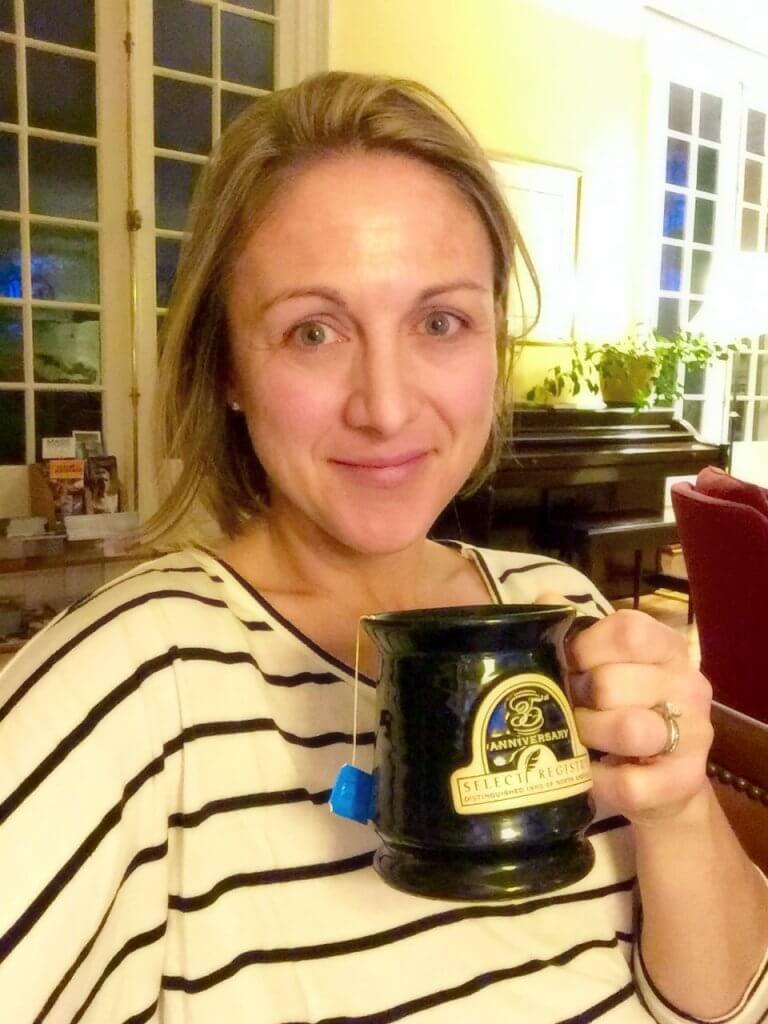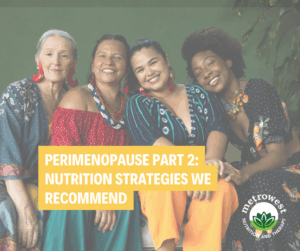
Embracing Beauty: The Good, The Bad & The Ugly
In 2003 I had been working in the eating disorder field for 2 years. I was honored to be invited to participate on a panel discussion with
other eating disorder professionals at a local conference. The discussion gets underway and I’m feeling pretty good about myself.
A seasoned therapist sitting next to me says to the audience “as eating disorder clinicians, it is critical that we not care about our appearance”
(this is what I recall hearing at least). I thought, “Oh boy, am I in trouble!
Because you know what? I did and still do care.
As an impressionable and passionate young clinician, I was up for doing whatever it took to do this work well – I loved it!
So, I tucked that part of myself away and out of sight. I tried hard to keep it down and then would feel ashamed when it resurfaced. I
now realize how absurd it was to expect myself not to care at all about my appearance in a culture that’s constantly reminding me how important it
is to care. Exploring my personal beauty construct and making peace in my relationship
with my physical appearance has been paramount in helping my clients do the same. So many clients I’ve worked with who struggle with eating
disorders have described this inner conflict – they are equally furious about the pressures our culture places on them while falling victim
to them at the same time.
The reality is, I spent a good portion of my childhood not feeling “pretty enough” despite getting regular compliments on my looks. I come
from a long line of incredibly beautiful women and saw the admiration they received for their looks readily. It became clear that
appearance was important and living in a family with so many beautiful women, I felt “ok” attractive.
My mother worked hard to teach me and my sisters that our worth extended far beyond our physical appearance. Nonetheless, I internalized the message
beautiful=loveable.
Beauty carries a burden (I am well aware of the repugnance of this statement as I am experiencing some nausea myself right now, but please
hear me out). I’m referring to the unspoken jealously and competition that occurs between women that can be incredibly painful. And the
fact that when you are continually revered for your appearance starting at a young age, it becomes very important to maintain that and even worse,
be “the prettiest” of the pretty girls to feel special (read: loveable). In a family of all girls, there is a tendency for these dynamics
to get amplified. I’ve heard a number of female clients refer to themselves as the “fat one” or “ugly one” in the family when in fact, they are
objectively neither (it’s all about the comparative reference). Our culture pits women against each other in a silent but excruciating way.
In a 2013 literature review referenced in this NYT article,
Tracy Vaillancourt found that women by and large express indirect aggression toward each other, and that aggression is a combination of “self-promotion,” making themselves look more attractive, and “derogation of rivals,” ( cutting down other women). A few years back, an old friend of
mine said to me at a party “You’re so skinny, I hate you”. I give her credit for putting it out there instead of operating in the typical relational
aggressive fashion most women do, but um… how do I respond to this? A. “Gee, I’m sorry, it wasn’t my intent to make you uncomfortable.
I’ll make sure to put on some weight before I see you again” or B. “Well, everything else in my life is awful so don’t feel so bad”. The term
“thin privilege” was mentioned at a recent presentation I was at on Health at Every Size. It got me thinking, is there also such a thing
as “thin woman’s burden”?
What that 20-something version of myself heard on that panel years ago was that part of me was unacceptable and beyond that, if
I expected to have a career working with eating disorders, I’d better damn well fix it. I squelched this vanity part of myself for quite
some time until I literally thought I’d killed it. News alert! It’s not possible kill part of yourself and oh by the
way, you may want to watch out for that shame storm rolling in! What’s even worse, somewhere along the way, the belief “you shouldn’t care about your appearance” morphed into “don’t shine, be dull. It’s easier that way”. So I wildly embraced “being ugly” and “not caring”. While freeing
on one hand, not surprisingly, it didn’t lead to great self-care.
Now, 13 years later, as a more experienced clinician and human being, I realize just how insane it was to believe that I could cut off any part of myself. Cutting off my vanity part would be the equivalent of cutting off my little toe – I don’t need it but boy would
that be painful! Thankfully, I’ve moved (or am moving) beyond these limiting beliefs and away from shutting off or compartmentalizing any of my parts.
Fully-integrated self here, reporting for duty! (at least until that next part comes out of hiding). For any therapists out there who understand
Internal Family Systems, this is an excellent example of “parts work”. I embrace all my parts – the good, the bad and the ugly (the
Ugly Duckling story offers a great metaphor for this). I care about my appearance while not hinging my worth to it. My physical beauty
is not where my value lies but it’s something I am very grateful for. I’m hoping that while we’re striving to eliminate fat stigma,
I can use my “thin privilege” for the greater good – to create the positive changes I’d like to see in the world. Guilt and shame are antitheses
of that and I refuse to live there. I have already witnessed how exploring my own relationship with my personal beauty construct has
helped others on their journeys.
And what is beauty anyway? Who really knows. You could ask 10 different people and get 10 different answers. And that’s the “beauty”
of it. It’s individual and it’s constantly evolving. I’ve watched my own definition of beauty change over the years and look forward to
seeing how it continues to shift with more time. As I’m writing this, I’m wishing I could go back to my younger self and offer up a warm hug
and my years of wisdom. I would implore her to shine bright. “Don’t shine, be dull” is no motto to live by.
And it’s certainly not a motto I want to pass along to any of my clients let alone my daughter.
I love this quote by Marriane Williamson and it fits perfectly here:
“Our deepest fear is not that we are inadequate. Our deepest fear is that we are powerful beyond measure. It is our light, not our darkness that most frightens us. We ask ourselves, Who am I to be brilliant, gorgeous, talented, fabulous? Actually, who are you not to be? You are a child of God. Your playing small does not serve the world. There is nothing enlightened about shrinking so that other people won’t feel insecure around you. We are all meant to shine, as children do. We were born to make manifest the glory of God that is within us. It’s not just in some of us; it’s in everyone. And as we let our own light shine, we unconsciously give other people permission to do the same. As we are liberated from our own fear, our presence automatically liberates others.”
True beauty is revealed through radical self-acceptance and self-love. When we align with our true self, we experience a level of joy that has no
choice but to radiate outward to others; it’s absolutely breathtaking. All the cosmetics and plastic surgery in the world can never compete
with this. In a world full of consumerism, it’s certainly easy to attach to external appearance and material possession as a conduit to
love and acceptance but we need to adjust our course; we must detour now because we’re heading in the wrong direction. Anita Johnston also mentioned
this in her talk – “belonging [which we are all searching for] comes from connecting to our inner sense of self and extending from there”. I
will leave you with that.
Thank you for the opportunity to share some of my story with you.
-Namaste (the divine light in me sees the divine light in you)



